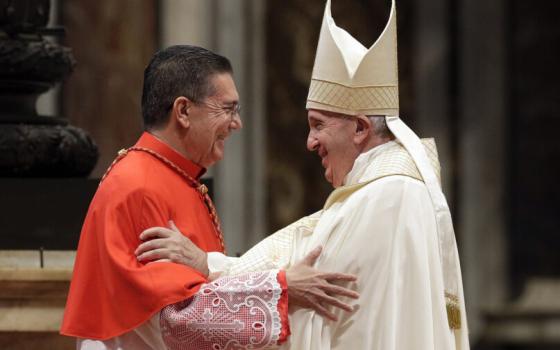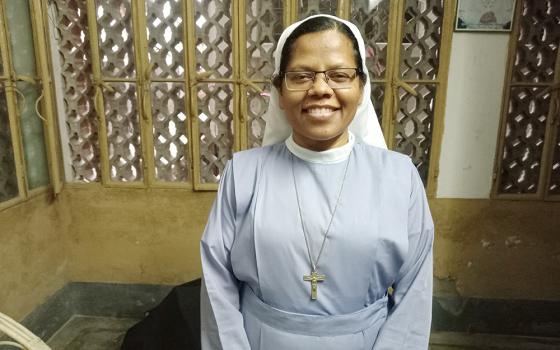The chairmen of three U.S. bishops' committees Aug. 21 welcomed a proposed rule from the U.S. Department of Labor aimed at clarifying religious protections that may be invoked by federal contractors, including faith-based organizations.
"Faith-based groups should have the opportunity to compete on a level playing field as they seek to partner with the federal government to provide critical social services," the bishops said in a statement. "These proposed rules protect religious liberty, a core constitutional right, by clarifying existing religious exemptions consistent with federal law and recent Supreme Court precedent."
The statement was issued by Bishop Robert McManus of Worcester, Massachusetts, chairman of the U.S. Conference of Catholic Bishops' Committee for Religious Liberty; Bishop Frank Dewane of Venice, Florida, chairman of the U.S. bishops' conference Committee on Domestic Justice and Human Development; and Bishop James Conley of Lincoln, Nebraska, chairman of the bishops' conference Subcommittee for the Promotion and Defense of Marriage.
The proposed rule would clarify that religious organizations may make employment decisions "consistent with their sincerely held religious tenets and beliefs without fear of sanction by the federal government," the Labor Department said in announcing it Aug. 14. The proposal was issued by the department's Office of Federal Contract Compliance Programs, known as OFCCP.
Acting Secretary of Labor Patrick Pizzella said in a statement: "Today's proposed rule helps ensure the civil rights of religious employers are protected. As people of faith with deeply held religious beliefs are making decisions on whether to participate in federal contracting, they deserve clear understanding of their obligations and protections under the law."
The American Civil Liberties Union opposed the measure, saying it will "let government contractors fire workers who are LGBTQ, or who are pregnant and unmarried, based on the employers’ religious views."
However, the Labor Department said the proposal "also reaffirms employers’ obligations not to discriminate on the basis of race, sex, or other protected bases and does not exempt or excuse a contractor from complying with any other requirements."
"The proposed rule is rooted in statute, Supreme Court decisions and executive orders. The Civil Rights Act of 1964 includes a critical, protective exemption for religious organizations," the department said.
It cited three recent decisions from the high court: Masterpiece Cakeshop v. Colorado Civil Rights Commission, Trinity Lutheran Church v. Comer and Burwell v. Hobby Lobby Stores.
In the Masterpiece case, the court ruled in favor of a Colorado baker who refused to bake a wedding cake for a same-sex couple because of a religious objection. The baker was sued despite telling the couple he would make a cake for them for another event, just not the wedding; he also has refused to make other cakes that are against his religious beliefs.
In the Trinity Lutheran case, the justices ruled Missouri had wrongly determined the church as a religious entity could not receive public funds for a playground used by students no matter their religion. In the Hobby Lobby case, the court ruled the company could not be force under the Affordable Care Act to cover abortifacients for employees; the company, which covers contraceptives, said providing coverage of abortifacients violated their religion.
In their statement, the bishops' conference committee chairmen said: "We are grateful to the administration for taking this step, and we look forward to filing more detailed public comments with OFCCP."
Advertisement






